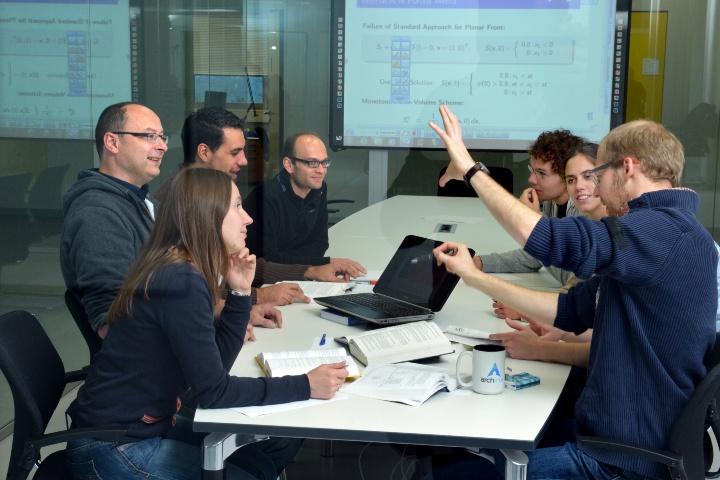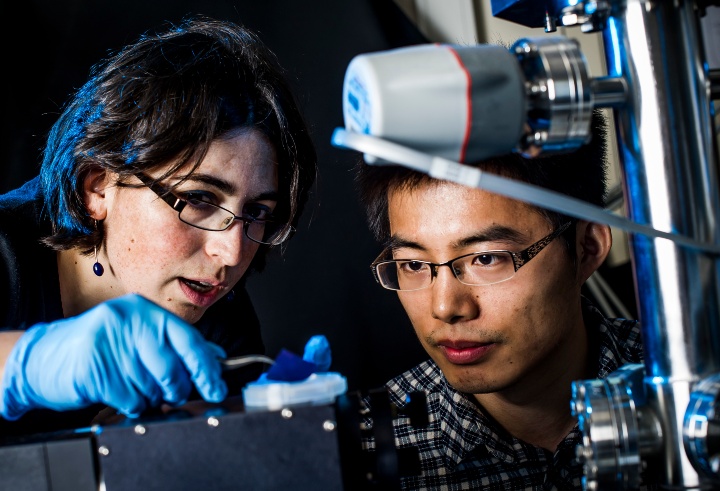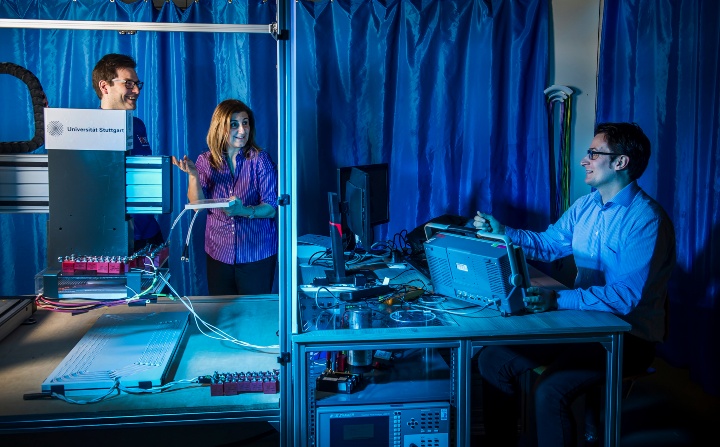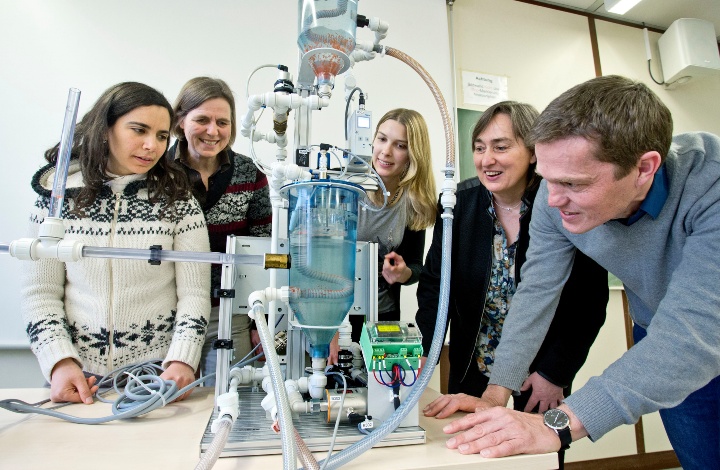Vision
Vision addresses the question of what kind of future we see for ourselves and how our university will adapt to it.
Intelligent systems to benefit society.
Vision of the University of Stuttgart
Mission statement
The University of Stuttgart’s mission statement describes the way the university conceives of itself and on what it bases its actions. The mission statement informs all goals the university sets and the actions it undertakes. These are its key propositions:
- The University of Stuttgart is a leading, technically-oriented German university with a global presence.
- Basic research that is both insight-oriented and practically-relevant is the key to its functioning.
- The university educates not only outstanding experts in their chosen domains but also personalities who think globally and interactively and act responsibly for the sake of science, society, and the economy.
- Through its research and teaching, it fosters the general welfare and contributes to economic success.
- As an employer, it creates space for diversity and equal opportunity as well as fair treatment for all – regardless of status, age, ethnicity and gender.
- The University of Stuttgart advocates for open-mindedness, individualism, and community spirit. Thanks to this culture of integration, it is able to create and pass on knowledge for a responsible shaping of our common future.
In accordance with Art. 5 para. 3 GG and Art. 3 LHG BW, the freedom of science, research and teaching is guaranteed at the University of Stuttgart as an institution but also for all university members. However, this freedom does not take precedence over other fundamental rights and thus comes with responsibility, which must be taken into account both by the University of Stuttgart as a university and scientific institution, but also by every person teaching and researching at the university. In order to fulfill this responsibility, the University of Stuttgart commits itself to the integrity of scientific practice in its Code of Conduct. This commitment is expressed by following the rules of good scientific practice specified in its statutes (announcement No. 15/23 [de]), which implement the guidelines of the German Research Foundation (DFG). The establishment of the Commission for Responsibility in Research (announcement No. 33/17 [de]) also ensures the responsible implementation of freedom in science and research.
The university's mission statement also includes research-led teaching, which is considered an essential part of academic education and must be reconciled with the university's goal of producing excellent graduates. In order to face these challenges and at the same time ensure freedom in teaching, the University of Stuttgart has adopted a teaching policy [de].
The university's commitment to freedom in science, research and teaching as a globally important and desirable value is also expressed by the fact that it is one of the signatories of both the original 1988 version and the new version of the Magna Charta Universitatum reissued in 2020.
Strategic goals
Our goals, deriving from our vision and mission statement, are set for the long term and are fundamental to the way we operate.
Our seven strategic goals span the overarching strategic framework and serve to orient our operational objectives and the measures that will help us reach them.
The „Stuttgarter Weg” (Stuttgart Way), standing for collaboration among complementary specialist disciplines, opens unique opportunities for jointly posing new questions and developing groundbreaking answers.
Consequently, the University of Stuttgart reinforces links between different ways of approaching subject matter and methods in research and teaching by integrating its engineering and natural sciences, humanities and social sciences.
The University of Stuttgart is known the world over as a research university on the cutting edge of scientific-technological progress.
It has attained this position thanks to its research strength in cross-linked disciplines and due to its cooperation with strong regional, national, and international partners. In all phases of the academic career path, the University focuses on recruiting and promoting outstanding achievers.
The University of Stuttgart attracts talented, ambitious students that it knows how to motivate for science from the start of their studies through research-based teaching and learning.
It does this by creating a subject-matter and methodological framework for high quality, integrated studies, for a successful final qualification and for shaping a well-rounded person. It creates a lifelong connection with its alumni through a varied and engaging offering.
The University of Stuttgart is an internationally recognized partner for knowledge and technology transfer with industry, science, and society.
With a locally-grounded tradition of excellent, visionary researchers, the University is able to serve and strengthens the surrounding region, provide a place for societal reflection and act as an effective, cutting edge innovator.
The University of Stuttgart attracts creative, committed people at all stages of their professional lives to its workforce.
The University stands for equal opportunity, diversity, and work-life balance. A responsive leadership culture cultivates the enthusiasm and motivation of its employees and opens attractive avenues for continuing education and personal development for them.
Thanks to its international orientation, the University of Stuttgart fosters different ways of thinking, attracts students and scientists from around the globe and produces graduates who know how function responsibly in changing contexts both at home and abroad.
It grounds international and intercultural perspectives in the questions it asks, the methods it employs, the content, programs, and work practices it generates, and in the cooperation it practices with its international partners.
The University of Stuttgart aims for sustainable development in all its operations and makes it an important subject matter to be addressed in research, teaching, and cooperation.
The university tackles major concerns of our time and, to this end, works closely together with society to develop sustainable solutions for the needs and challenges of future generations.









